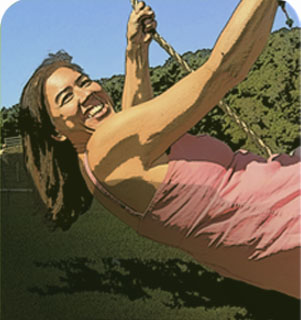Hearing the heart of my son
Thich Naht Hanh tells a story about a child whose wealthy father asks him, “what do you want for your birthday?” The child is unable to answer because all he wants is the one thing that the father has not been able to do, to “just be with him, to sit with him, to listen”. At the IMCW family retreat this weekend, we were making heart mandalas, checking in at different moments to see how our hearts felt and drawing whatever that looked like. The last time we came together to do it, my son Robbie was angry and said, “I don’t want to do this anymore, it is boring.” I started to get frustrated back. I cajoled with, “just tell me a color that represents your heart”…a frown and shake of the head…”okay, what about an animal”…” He was getting more and more frustrated and I was getting more and more pissed off. (There is nothing like a meditation retreat to bring difficult feelings out, as well as the irritation at myself for feeling that way.) We got lost for a bit in all the irritation, I got a kick in the leg from him, and he got a scolding from me.
But at some point, I became aware of the divide between us. And how large it was getting. He was not aware of how his heart felt, but he was very aware of my irritation. I was aware of his growing aloneness, of a sense of separation and disappearing into himself. In young children, they are not separate from us, yet as adults through our culturalization, our experiences, habits and beliefs, we are separate from them and we teach them this. And in teaching this, we offer all sorts of strange refuges from separation rather than teaching them to come home to connection…television, making money, eating food when not hungry, and sometimes even religion. It takes some bit of work at times to remember that the separation we create between each other does not exist in children. This has been especially foremost in my mind these last 2 weeks with the Charleston shootings. And while I am not overtly teaching Robbie to hate outwardly, I became aware in that moment of the roots of self hatred, a type of hatred toward having one’s own experience. And then the shame for being different, and that to not know one’s feelings meant separation.
So I named what he said to me, “You are tired of doing this?” No answer. Arms folded. I put my arms around him. Took a breath. ” Is it that you don’t know how you feel?” His eyes welled up. “Do you just want to be close?” He nodded yes. And buried his face in my neck. I said, “I am sorry honey for not hearing you. ” Somehow saying sorry really was not the point, taking the time to breathe with him was. He had said to me earlier in the week when I was having a difficult challenging interaction with someone I loved, someone who was not even in the room, “Mom, there is nothing more important this moment, nothing.” The interaction with the mandala reminded me of what he said. So we reconnected through breathing. It may not have been the happiest moment, but the connection there extended past any feeling. And when resting into that connection, we found a common ground to meet, a place of true refuge.
As adults, finding the languaging is even more difficult, we defend our wounds at the cost of true connection, only to find ourselves more wounded, saddened and angry when in fact all we want is to be heard. But if we in our own selves cannot even hear and breathe our own hurts, to honor them, it becomes difficult to hear another much less to be heard, for what we project is our defensiveness not our desire for connection. I had to recognize in that moment how very hurt I was feeling inside from not being listened to in my life, to feel the pain from that and to not separate from it. And in that place of hearing myself, I became able to reach my son. This for me is the true benefit of practicing metta, when we can witness ourselves, we can witness another, and in this witness bring this deep caring to the world.
